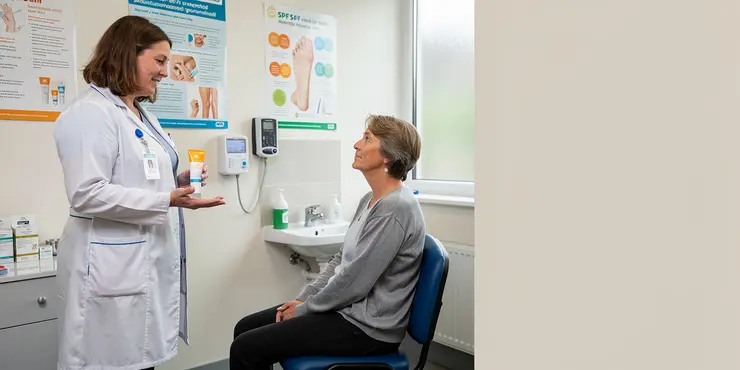
Find Help
More Items From Ergsy search
-
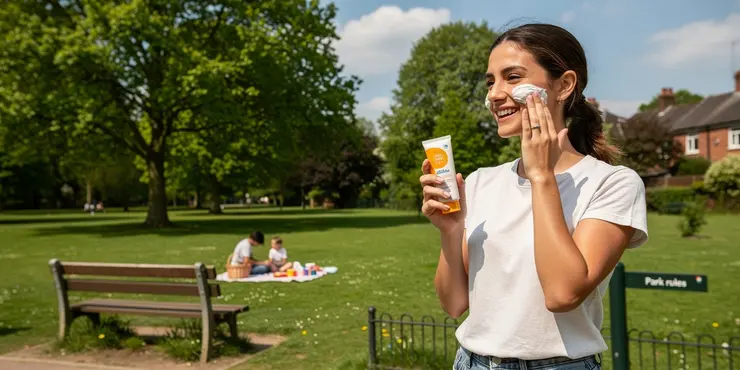
How does sunscreen with SPF 20 compare to SPF 50?
Relevance: 100%
-

What does SPF stand for?
Relevance: 96%
-
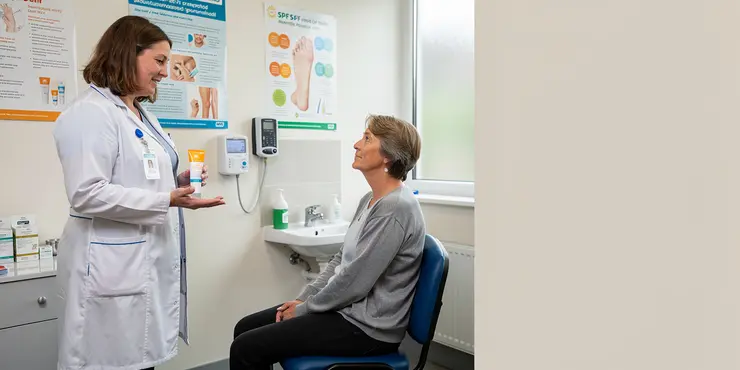
Is a higher SPF always better?
Relevance: 96%
-
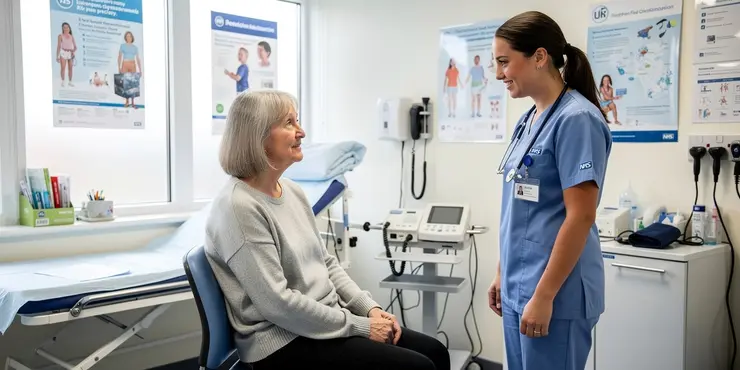
Can makeup with SPF replace sunscreen?
Relevance: 92%
-
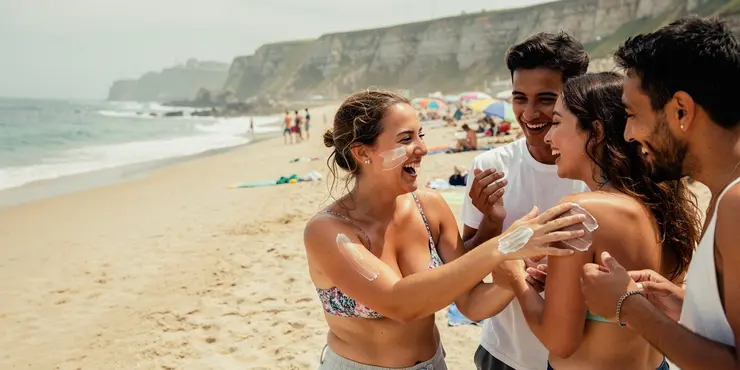
Do I need a different SPF for water-related activities?
Relevance: 90%
-

What SPF level is recommended to prevent sunburn?
Relevance: 89%
-

Should I use a different SPF for my face and body?
Relevance: 85%
-

What SPF should I use if I am going to be outdoors all day?
Relevance: 84%
-
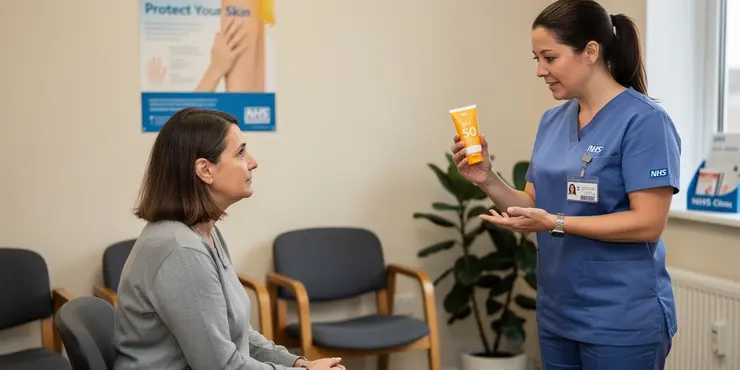
What SPF should I use if I have sensitive skin?
Relevance: 83%
-
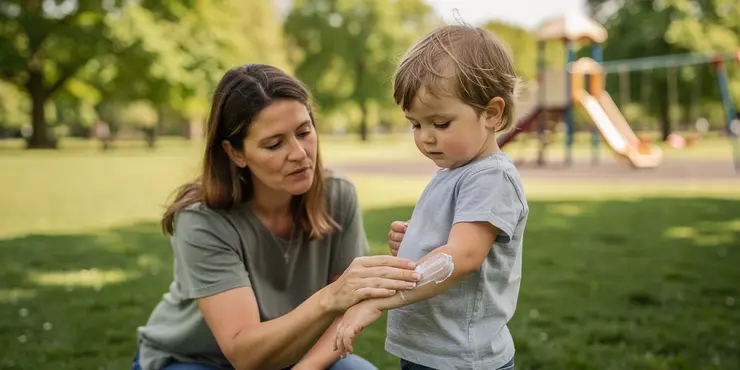
What SPF is best for children?
Relevance: 68%
-
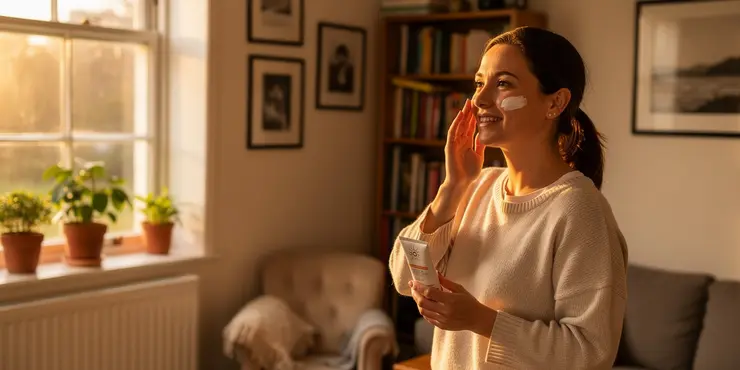
Is SPF 15 enough for everyday use?
Relevance: 65%
-
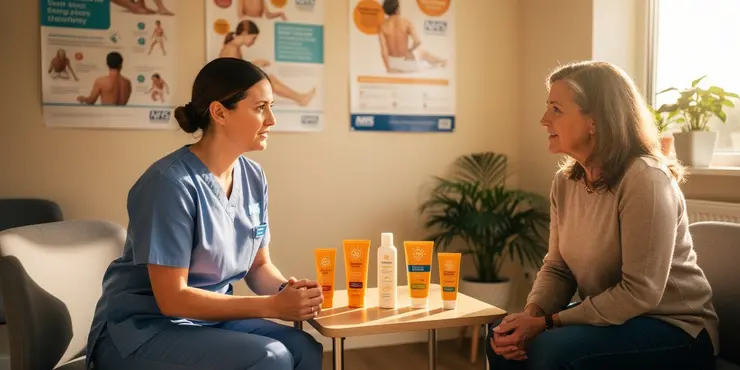
Which factor sunscreen should I use?
Relevance: 51%
-

Does tanning lotion prevent sunburn?
Relevance: 45%
-
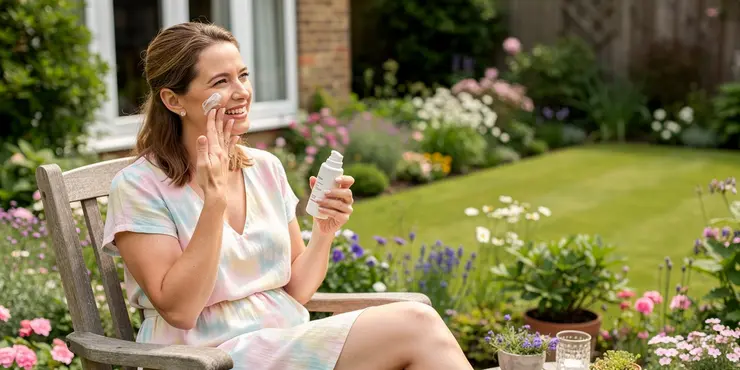
What SPF is recommended for fair skin?
Relevance: 41%
-
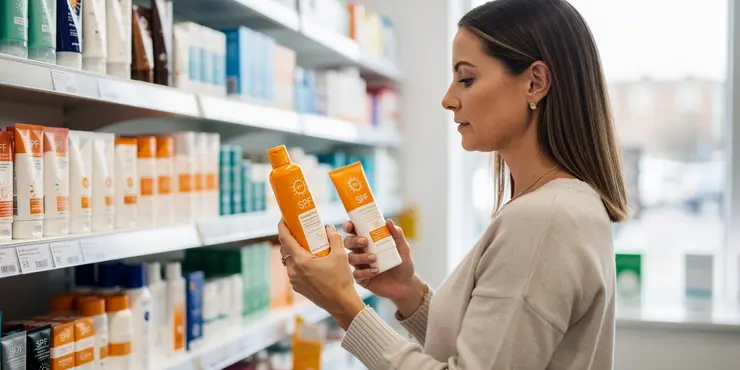
How do I choose the right SPF for daily use?
Relevance: 38%
-

What SPF should I use if I have darker skin?
Relevance: 36%
-

How can I be sure that my sunscreen SPF rating is accurate?
Relevance: 36%
-
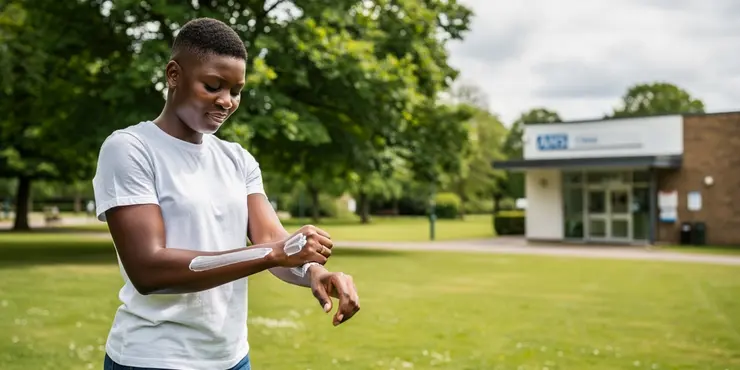
Can dark-skinned individuals get sunburned?
Relevance: 30%
-

How often should I reapply sunscreen?
Relevance: 28%
-

Do I need sunscreen on cloudy days?
Relevance: 28%
-

What is sunburn?
Relevance: 28%
-
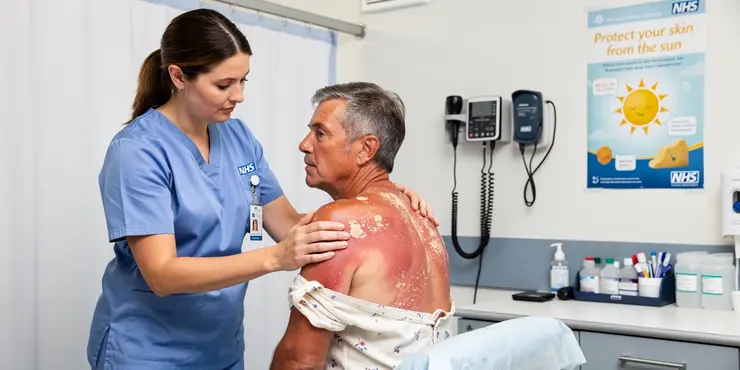
Can sunburn turn into a tan?
Relevance: 26%
-
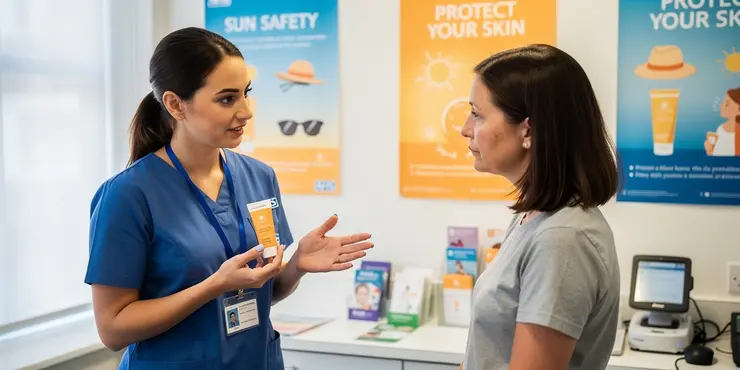
Can sunburn be prevented?
Relevance: 26%
-

What is Sunburn?
Relevance: 25%
-

What to do if you're sunburnt
Relevance: 25%
-
Is pre-tanning in a sunbed a good way to prepare my skin for sun exposure?
Relevance: 23%
-
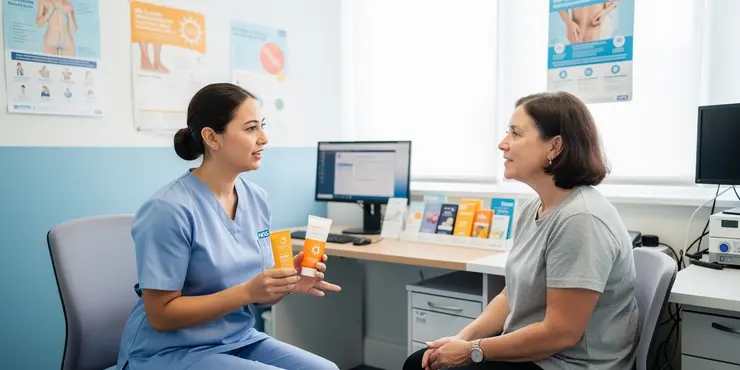
Which sunscreen should I use?
Relevance: 22%
-

Skin cancer education
Relevance: 22%
-
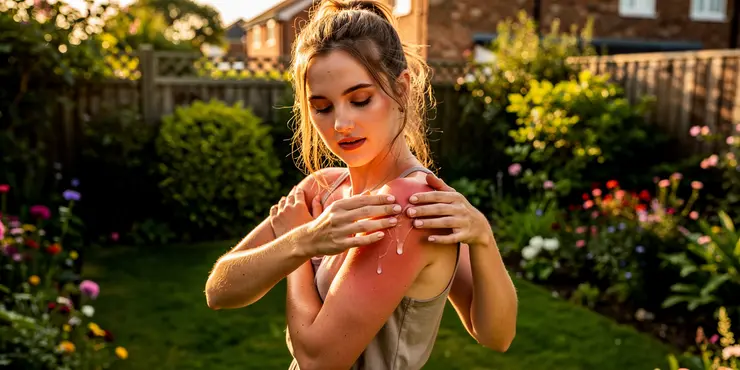
Self care - sunburn
Relevance: 21%
-
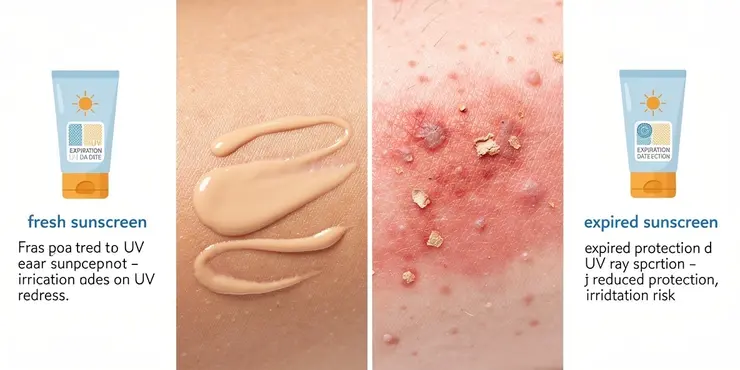
Can I use expired sunscreen?
Relevance: 19%
-
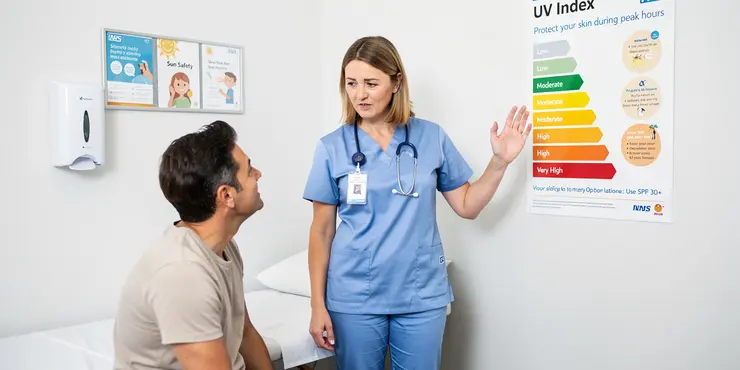
At what time of day is the sunburn risk highest?
Relevance: 19%
-
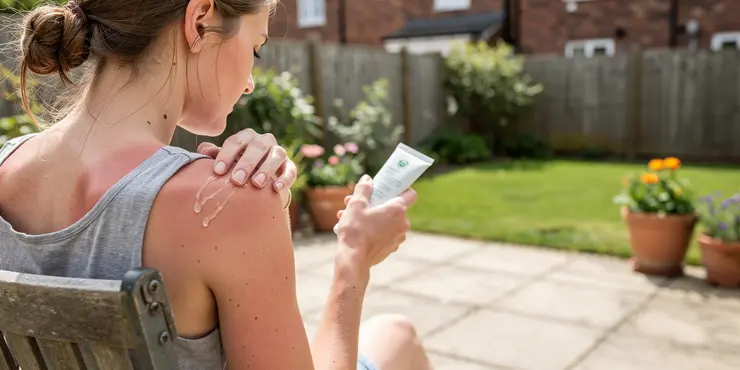
Self care - sunburn
Relevance: 19%
-

Actinic keratoses (solar keratoses)
Relevance: 18%
-

Why do some people not burn as easily as others?
Relevance: 18%
-

How can I prevent cold sores?
Relevance: 18%
-

How can I keep children safe during a heatwave?
Relevance: 17%
-
Does tanning on sunbeds reduce the risk of future sunburns?
Relevance: 16%
-

Does sunscreen expire?
Relevance: 16%
-

Skin Cancer - How do I check if my mole is skin cancer? | NHS
Relevance: 15%
-
Do sunbeds help improve skin tone and texture?
Relevance: 14%
Understanding SPF in Sunscreens
Sun Protection Factor, or SPF, is a measure of how well a sunscreen can protect the skin from UVB rays, the kind of radiation that causes sunburn and contributes to skin cancer. An SPF number, such as SPF 30, indicates that it would take 30 times longer for the skin to burn than if no sunscreen were applied. However, there’s a common misconception that higher SPF values offer exponentially greater protection.
Comparing SPF Levels
It's important to understand the differences in protection levels. SPF 15 filters about 93% of UVB rays, while SPF 30 provides approximately 97% protection. SPF 50 blocks about 98% of UVB rays. The increase in percentage blocked is minimal above SPF 50, which is why dermatologists often recommend SPF 30 to 50 for effective protection. In the UK, where overcast weather can be frequent, it's easy to underestimate UV exposure, making adequate SPF application vital.
When Higher SPF Might Be Necessary
While higher SPF offers slightly better UVB protection, it can give users a false sense of security, leading to extended sun exposure. For those with fair skin, a history of skin cancer, or conditions that increase sun sensitivity, a higher SPF could offer marginally better protection. However, it’s crucial to reapply sunscreens regularly, regardless of SPF, especially after swimming or sweating.
Broad-Spectrum Protection
Besides SPF, choosing a 'broad-spectrum' sunscreen is essential as it protects against UVA and UVB rays. UVA rays penetrate the skin more deeply and contribute to premature ageing and wrinkling, in addition to heightening skin cancer risk. In the UK, where UVA exposure is constant, ensuring your sunscreen offers broad-spectrum protection is as critical as the SPF level.
Usage Tips for Optimal Protection
Proper application of sunscreen is crucial. Around two tablespoons should be applied to cover the exposed areas of the body, and it should be applied 15 minutes before heading outdoors. Reapplication every two hours is necessary, and more often if you are swimming or sweating. Even on cloudy days, the sun’s rays penetrate through clouds, requiring the same precautions as on sunny days.
Conclusion: Balance and Caution
While a higher SPF may seem inherently better, it’s not always necessary for effective sun protection. An SPF of 30 to 50, coupled with broad-spectrum protection, is generally sufficient when applied and reapplied correctly. It’s key to maintain awareness of the sun’s strength, especially on overcast UK days, to avoid unintentional overexposure. Lastly, combining sunscreen use with other protective measures, such as wearing hats and UV-protective sunglasses, can significantly enhance your skin’s defence against harmful UV rays.
Understanding SPF in Sunscreens
SPF means Sun Protection Factor. It tells us how well sunscreen stops our skin from getting sunburned. Sunburn comes from UVB rays. The number, like SPF 30, means our skin takes 30 times longer to burn with sunscreen on than without it. Don't think that a higher number means much better protection.
Comparing SPF Levels
Different SPF numbers protect differently. SPF 15 blocks 93% of UVB rays. SPF 30 blocks about 97%. SPF 50 blocks about 98%. After SPF 50, the difference is small. Doctors often say SPF 30 to 50 is good enough. In the UK, we should not forget about sun exposure, even on cloudy days.
When Higher SPF Might Be Necessary
A higher SPF might give a little more protection. But it can make people think they can stay in the sun longer, which is not true. People with fair skin or who have had skin cancer might need higher SPF. But remember, you should put on more sunscreen after swimming or sweating, no matter the SPF.
Broad-Spectrum Protection
Look for 'broad-spectrum' on sunscreen. This means it protects from UVA and UVB rays. UVA rays go deeper into the skin and can make us look older faster and increase skin cancer risk. In the UK, there is always UVA around, so broad-spectrum is important, just like SPF is.
Usage Tips for Optimal Protection
Put on sunscreen the right way! Use about two tablespoons for your body. Apply it 15 minutes before going outside. Put it on again every two hours. Do it more often if you swim or sweat. Even when it's cloudy, the sun can still burn you, so use sunscreen like on sunny days.
Conclusion: Balance and Caution
Higher SPF is not always better. SPF 30 to 50 with broad-spectrum protection usually works well if you use it right. Stay aware of the sun, even on cloudy UK days, to stay safe from too much sun. Also, wear hats and UV sunglasses to help protect your skin even more.
Frequently Asked Questions
What does SPF stand for?
SPF stands for Sun Protection Factor, which measures a sunscreen's ability to protect against UVB rays.
Is a higher SPF always better?
Not necessarily. While higher SPF values provide more protection, the increase in protection becomes marginal beyond SPF 30-50.
What level of SPF is generally recommended?
Dermatologists typically recommend using a sunscreen with at least SPF 30 for adequate protection.
Does SPF 100 offer twice the protection of SPF 50?
No, SPF 100 does not offer twice the protection. SPF 50 blocks about 98% of UVB rays, while SPF 100 blocks about 99%.
Why might someone choose a higher SPF?
Someone might choose a higher SPF for prolonged sun exposure or if they have fair skin that burns easily.
Is higher SPF less safe?
Higher SPF is not less safe, but it might give a false sense of security leading to inadequate application and reapplication.
How often should sunscreen be reapplied?
Sunscreen should be reapplied every 2 hours, or more often if swimming or sweating.
Does a higher SPF require less reapplication?
No, regardless of SPF value, reapplication every 2 hours is necessary for maintaining protection.
Is SPF the only factor in sunscreen efficacy?
No, the formulation, proper application, water resistance, and broad-spectrum protection are also important.
What is broad-spectrum protection?
Broad-spectrum protection means the sunscreen protects against both UVA and UVB rays.
Does sunscreen expire?
Yes, sunscreens have an expiration date after which their effectiveness may diminish.
Can makeup with SPF replace sunscreen?
Makeup with SPF can provide some protection, but it's usually not a substitute for sunscreen due to limited coverage.
Can you get a tan with SPF 50?
You can still get a tan while using SPF 50, as no sunscreen blocks 100% of UV rays.
What SPF is recommended for children?
For children, use a broad-spectrum, water-resistant sunscreen with at least SPF 30.
Is SPF important on cloudy days?
Yes, up to 80% of UV rays can penetrate clouds, making sunscreen important even on cloudy days.
Does SPF protect against skin cancer?
While no sunscreen can provide 100% protection, using one with adequate SPF reduces the risk of skin cancer.
Are all SPFs equally effective?
Effectiveness can vary based on proper application and UVA/UVB protection, not just the SPF number.
Why do higher SPFs cost more?
Higher SPFs often cost more due to the increased concentration of active ingredients needed for greater protection.
Does SPF protect from UVA rays as well?
SPF primarily measures UVB protection, so look for 'broad-spectrum' on labels for UVA protection.
Is it possible to be allergic to SPF?
Some people may be sensitive to chemical UV filters in sunscreens, which can cause an allergic reaction.
What does SPF stand for?
SPF means "Sun Protection Factor."
It tells you how strong sunscreen is. Higher numbers give more protection from the sun.
To help understand better, use pictures or ask someone to explain it to you.
SPF means Sun Protection Factor. It tells us how well a sunscreen can protect your skin from the sun's UVB rays, which can burn your skin.
Is a higher SPF always better?
SPF means Sun Protection Factor. SPF helps protect your skin from the sun.
Higher SPF can give more protection. But high SPF does not mean you can stay in the sun for a long time.
It is important to use sunscreen right. Put on enough sunscreen and do it often.
Tip: Use a timer to remember to reapply sunscreen every 2 hours.
No, you don't always need a really high SPF number. SPF 30-50 gives you a lot of protection from the sun. Higher numbers don't add much more safety.
What SPF number should I use?
SPF tells us how well sunscreen protects our skin from the sun.
It is good to use SPF 30 or higher.
If you go outside, put on sunscreen to keep your skin safe.
Ask a grown-up if you need help.
Skin doctors say it's good to use sunscreen that is SPF 30 or higher to keep your skin safe from the sun.
Does SPF 100 protect you twice as much as SPF 50?
SPF 100 and SPF 50 are numbers on your sunscreen bottle.
SPF means Sun Protection Factor. It tells you how well the sunscreen protects your skin from the sun.
SPF 100 does not protect you twice as much as SPF 50.
Both help keep your skin safe in the sun, but neither is perfect.
It's still important to wear a hat, sunglasses, and stay in the shade sometimes.
Ask an adult to help you choose and put on sunscreen.
No, SPF 100 does not give double the protection. SPF 50 stops about 98% of the sun's UVB rays. SPF 100 stops about 99% of the UVB rays.
To help understand, think of UVB rays like rain. Both SPF 50 and SPF 100 are like umbrellas. SPF 50 will keep out most of the rain (98%), while SPF 100 will keep out a tiny bit more (99%).
Here are some tips to stay safe in the sun:
- Use sunscreen with at least SPF 30.
- Reapply sunscreen every 2 hours.
- Wear a hat and sunglasses.
- Stay in the shade when the sun is strong.
Why pick a higher SPF?
SPF means Sun Protection Factor. It helps protect your skin from the sun. A higher SPF gives you more protection.
Reasons to pick a higher SPF:
- You have very fair skin.
- You get sunburnt easily.
- You will be in the sun for a long time.
- You want extra safety from strong sunshine.
How to stay safe in the sun:
- Wear a hat and sunglasses.
- Use sunscreen with the right SPF.
- Stay in the shade when the sun is very strong.
People might use sunscreen with a higher SPF if they are going to be in the sun for a long time or if they have light skin that gets sunburned easily.
Is higher SPF less safe?
SPF stands for sun protection factor. It helps protect your skin from the sun. A higher SPF means more protection. But does a higher SPF make it less safe?
No, a higher SPF is not less safe. It gives you more protection from the sun's rays. You should still make sure to put on enough sunscreen and reapply it often, especially if you are swimming or sweating.
Easy Tips:
- Use sunscreen with SPF 30 or higher.
- Put it on 30 minutes before going outside.
- Reapply every 2 hours.
- Wear a hat and sunglasses for extra protection.
These tips can help keep your skin safe from the sun.
Using sunscreen with a higher SPF is safe. But, it might make people think they don't need to put on enough sunscreen or put it on again later.
How often should you put sunscreen on again?
It is important to put sunscreen on more than once. Here is how you can do it:
- Put sunscreen on every 2 hours when you are outside.
- If you swim or sweat a lot, put it on again right after.
- Make sure to cover all parts of your skin that see the sun.
If you need help, ask an adult or use an alarm to remind you!
Put more sunscreen on your skin every 2 hours. If you go swimming or sweat a lot, put on more sunscreen even sooner.
Do I need to put sunscreen on less often if it has a high SPF?
No matter what the SPF number is, you need to put sunscreen on again every 2 hours. This helps keep your skin safe.
Does SPF tell us everything about how well sunscreen works?
No, it's not just that. How sunscreen is made, how you put it on, if it stays on in water, and if it protects against all kinds of sun rays are also important.
What is broad-spectrum protection?
Broad-spectrum protection means sunscreen keeps you safe from the sun. It stops both UVA and UVB rays. UVA rays can make your skin get old faster. UVB rays can cause sunburn. Use broad-spectrum sunscreen to protect your skin from both. It is like a shield for your skin.
Here are some tips to help:
- Put on sunscreen before you go outside.
- Wear hats and sunglasses for more protection.
- Find shady places when it’s sunny.
- Ask someone to explain if you need help.
When we say "broad-spectrum protection," it means the sunscreen keeps you safe from both kinds of sun rays called UVA and UVB.
Does sunscreen go bad?
Sunscreen can go bad over time. Check the date on the bottle to see if it is still good to use. If there is no date, try to remember when you got it.
If the sunscreen looks, smells, or feels different, it might not work well. It is best to get a new one.
You can set a reminder on your phone to check your sunscreen every year. This will help you remember to use fresh sunscreen to protect your skin.
Yes, sunscreen has a date when it stops working properly.
Can makeup with SPF be used instead of sunscreen?
Makeup with SPF offers some sun protection. But it's not the same as sunscreen.
What is SPF?
SPF is a number that shows how well something protects your skin from the sun.
Why sunscreen is important
Sunscreen gives your skin strong protection. It helps keep your skin healthy and safe from sun damage.
Makeup and sunscreen together
Using makeup with SPF can help, but it’s best to use sunscreen too. Wear sunscreen under your makeup for the best protection.
Tip:
Set a daily reminder to apply sunscreen before putting on makeup.
Makeup with SPF can help protect your skin a bit. But it's not as good as sunscreen, because it doesn't cover your skin fully.
Can you still get a tan if you use SPF 50 sunscreen?
You can still get a tan even if you use sunscreen with SPF 50. Sunscreen doesn't block all of the sun's rays.
What sunscreen number is good for kids?
When you choose sunscreen for kids, look for a high number like SPF 30 or SPF 50. This number helps keep their skin safe from the sun.
Tips:
- Put sunscreen on 15 minutes before going outside.
- Use lots of sunscreen so it works well.
- Put more on every 2 hours, especially if kids swim or sweat.
- Hats and sunglasses can help protect skin and eyes too.
For kids, use sunscreen that protects from all kinds of sun rays, stays on in water and is SPF 30 or more.
Is wearing sunscreen important on cloudy days?
Yes, lots of the sun's rays can go through clouds. This means it's important to wear sunscreen even when it's cloudy.
Try using a smartphone app with reminders to help remember to put on sunscreen.
Does SPF help stop skin cancer?
SPF is a way to protect your skin from the sun. When you use SPF, it can help stop your skin from getting hurt by the sun. This can help stop skin cancer.
Here are some tips to protect your skin:
- Put on SPF lotion or spray before you go outside.
- Wear a hat and sunglasses to protect your face and eyes.
- Stay in the shade when the sun is very strong.
- Wear clothes that cover your skin to keep it safe.
You can ask an adult to help you put on SPF. You can also use apps on your phone to remind you to reapply sunscreen when you are outside. Stay safe in the sun!
No sunscreen can keep your skin 100% safe. But using sunscreen with the right SPF can help stop skin cancer from happening.
Is every SPF as good?
How well sunscreen works depends on how you use it and if it protects against both UVA and UVB rays. It's not just about the SPF number.
Why do high SPF sunscreens cost more?
SPF stands for Sun Protection Factor. It tells you how well sunscreen protects your skin from the sun.
High SPF sunscreens protect better, so they can cost more.
They might have special ingredients to keep your skin safe. Making these sunscreens can also cost more money.
Here are some ways to learn more about sunscreen:
- Ask an adult to explain SPF to you.
- Watch a short video about how sunscreen works.
- Use a picture chart to learn which SPF you need for your skin.
Sun creams with higher protection (SPF) can cost more money. This is because they need more special ingredients to keep your skin safe from the sun.
If you want to understand this better, you can try using a dictionary to look up any tricky words. Reading with a friend or asking an adult for help can also make it easier.
Does SPF stop UVA rays too?
SPF is a number on sunscreen. It shows how much it stops sunburn. Sunburn comes from UVB rays.
But SPF does not say how well it stops UVA rays. UVA rays can hurt your skin too.
Use "broad spectrum" sunscreen. It stops both UVA and UVB rays.
Look for PA rating. More + marks mean more UVA protection.
If you need help, ask someone or use a picture guide.
SPF mostly shows how well it protects against UVB rays. To also protect against UVA rays, look for sunscreen labels that say 'broad-spectrum'.
Can someone be allergic to sunscreen?
Some people can have a problem with certain chemicals in sunscreen. This can make their skin feel itchy or red like an allergy.
Useful Links
This website offers general information and is not a substitute for professional advice.
Always seek guidance from qualified professionals.
If you have any medical concerns or need urgent help, contact a healthcare professional or emergency services immediately.
Some of this content was generated with AI assistance. We’ve done our best to keep it accurate, helpful, and human-friendly.
- Ergsy carfully checks the information in the videos we provide here.
- Videos shown by Youtube after a video has completed, have NOT been reviewed by ERGSY.
- To view, click the arrow in centre of video.
- Most of the videos you find here will have subtitles and/or closed captions available.
- You may need to turn these on, and choose your preferred language.
- Go to the video you'd like to watch.
- If closed captions (CC) are available, settings will be visible on the bottom right of the video player.
- To turn on Captions, click settings .
- To turn off Captions, click settings again.
More Items From Ergsy search
-

How does sunscreen with SPF 20 compare to SPF 50?
Relevance: 100%
-

What does SPF stand for?
Relevance: 96%
-

Is a higher SPF always better?
Relevance: 96%
-

Can makeup with SPF replace sunscreen?
Relevance: 92%
-

Do I need a different SPF for water-related activities?
Relevance: 90%
-

What SPF level is recommended to prevent sunburn?
Relevance: 89%
-

Should I use a different SPF for my face and body?
Relevance: 85%
-

What SPF should I use if I am going to be outdoors all day?
Relevance: 84%
-

What SPF should I use if I have sensitive skin?
Relevance: 83%
-

What SPF is best for children?
Relevance: 68%
-

Is SPF 15 enough for everyday use?
Relevance: 65%
-

Which factor sunscreen should I use?
Relevance: 51%
-

Does tanning lotion prevent sunburn?
Relevance: 45%
-

What SPF is recommended for fair skin?
Relevance: 41%
-

How do I choose the right SPF for daily use?
Relevance: 38%
-

What SPF should I use if I have darker skin?
Relevance: 36%
-

How can I be sure that my sunscreen SPF rating is accurate?
Relevance: 36%
-

Can dark-skinned individuals get sunburned?
Relevance: 30%
-

How often should I reapply sunscreen?
Relevance: 28%
-

Do I need sunscreen on cloudy days?
Relevance: 28%
-

What is sunburn?
Relevance: 28%
-

Can sunburn turn into a tan?
Relevance: 26%
-

Can sunburn be prevented?
Relevance: 26%
-

What is Sunburn?
Relevance: 25%
-

What to do if you're sunburnt
Relevance: 25%
-
Is pre-tanning in a sunbed a good way to prepare my skin for sun exposure?
Relevance: 23%
-

Which sunscreen should I use?
Relevance: 22%
-

Skin cancer education
Relevance: 22%
-

Self care - sunburn
Relevance: 21%
-

Can I use expired sunscreen?
Relevance: 19%
-

At what time of day is the sunburn risk highest?
Relevance: 19%
-

Self care - sunburn
Relevance: 19%
-

Actinic keratoses (solar keratoses)
Relevance: 18%
-

Why do some people not burn as easily as others?
Relevance: 18%
-

How can I prevent cold sores?
Relevance: 18%
-

How can I keep children safe during a heatwave?
Relevance: 17%
-
Does tanning on sunbeds reduce the risk of future sunburns?
Relevance: 16%
-

Does sunscreen expire?
Relevance: 16%
-

Skin Cancer - How do I check if my mole is skin cancer? | NHS
Relevance: 15%
-
Do sunbeds help improve skin tone and texture?
Relevance: 14%


